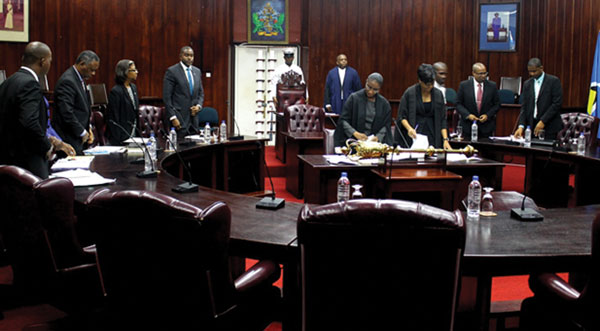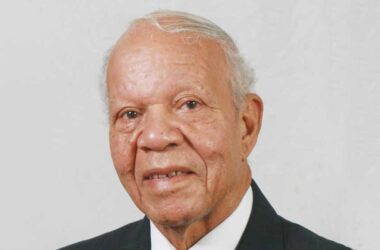TIME flies and keeps moving on. But what also doesn’t stop is the running of the business of the nation. So, at the end of the long annual Easter Holiday weekend, it’s back to the nation’s business.
We’ve just had an unusual Lenten Season 2018, during which Ash Wednesday fell on Valentine’s Day and Easter Sunday fell on All Fools Day. For a moment, it sounded like Easter Eggs this year could possibly have hatched Bunnies. But, Thank God, it had more to do with historical calendar coincidences and less with any pre-conceived plan by the un-Godly or the Anti-Christ.
The holidays now behind us, the national parliament continues discussing, debating and dividing itself over the Government’s 2018-2019 Budget plans.
This second crucial phase of the annual debate on fiscal policies and fiduciary concerns is the one during which the Estimates of Revenue and Expenditure will be proposed, voted on and (barring any unforeseen circumstance) passed.
It would do well, therefore, for citizens, who will be directly affected by every decision discussed and taken by their MPs, to pay more than the usual average attention to what’s going down on the floors in their name, in both Houses.
The matters before the House include yet another round of the usual, inescapable borrowing to pay debts. But where does our national debt stand today and how are we handling payments? The MPs may know the figures, but when and to what extent will John and Joan Citizen know just how much we owe and how we plan to pay? Or do we need a prominently-located national debt clock that keeps ticking by the dollar as fast as we borrow or get more national bills to pay?
The Throne Speech outlined an interesting series of proposed Government plans for the next Fiscal Year. But to what extent will each be discussed and agreed upon by both sides of both Houses?
Citizens tend to tune in to the debate to simply enjoy its sometimes use as a comedic battleground for barbs that sound more like private just-between-you-and-me political mysteries than helpful public disclosures.
Parliaments reflect the sum total of all the MPs at the time. No party leader knows or decides, ahead of an election, what his or her party’s representation in the House of Assembly will be after elections. That’s the exclusive preserve of voters. As such, the quality of debate to be expected will be the sum total of the level of preparedness and ability of each MP to make his or her case on the matter at hand.
It used to be that MPs spoke on behalf of their constituents, but increasingly it’s more about issues in the national public square.
With another parliamentary session destined to proceed without a Deputy Speaker, both sides seem destined to continue to protect the solidity of their parliamentary numbers. But has either side taken time off to assure itself that laws passed in and by a House of Assembly without a Deputy Speaker are well passed?
Time flies and ticks away, whether we are ready or not. But the nation’s business only moves along as fast as those driving it can handle and conduct safely.
Whether it’s a race for survival or an easy ride to better times, our yesterdays will continue to influence our tomorrows — and we will continue to have to take two steps backward to move one step forward – and look back as we move ahead to our future.
The past always helps decide the future, which is why some things just never change.














